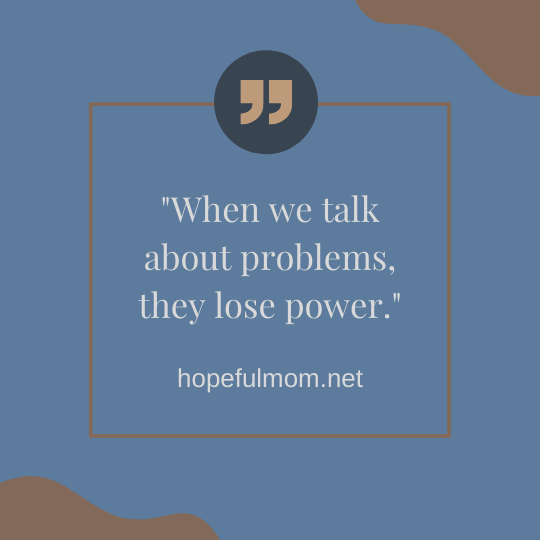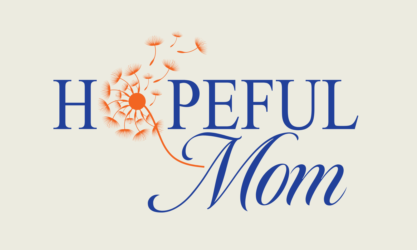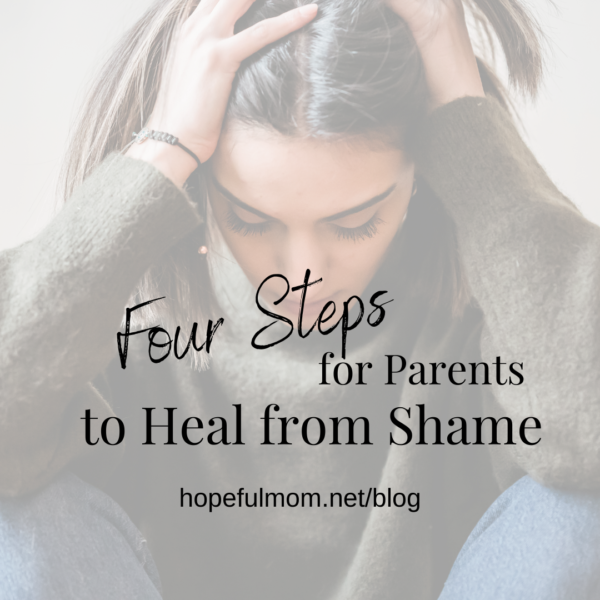Our children feel shame when they watch pornography. But do we, as parents, experience shame? I certainly did.
My friend and I sat at my kitchen table drinking coffee.
She took a sip of her coffee and set her cup on the table. “Your children are amazing. You’ve done such a great job raising them.”
Our children were in the backyard hanging out. This fellow homeschool mom and I were close. Shortly after meeting, we quickly knew about each other’s extended family and history. Whenever we got together, the conversation flowed freely from one topic to another without pause. We laughed together and felt each other’s pain when issues surfaced. I was comfortable when I was around her. But I kept a part of my life hidden.
I paused. I hoped my face didn’t reveal the thoughts in my head. If you only knew. I failed my son. He struggles with pornography use, and I am so ashamed. I debated telling her for half a second, then rejected the idea.
My smile faded, and I looked at the ground. “Well, they have their moments. I’ve done my best, I guess.”
I felt guilty for keeping our family’s business a secret. I would have preferred to get it out in the open. But I couldn’t, mostly for my son’s sake. But also, because I felt shame mixed in with all the other emotions I encountered.
Shameful Thoughts
What is shame? Merriam-Webster defines it as “a condition of humiliating disgrace or disrepute.”[i] Psychology Today states, “As a self-conscious emotion, shame informs us of an internal state of inadequacy, unworthiness, dishonor, regret, or disconnection. Shame is a clear signal that our positive feelings have been interrupted. Another person or a circumstance can trigger shame in us, but so can a failure to meet our own ideals or standards.”[ii]
Shame differs from guilt. Guilt says, “I did something wrong.” Shame says, “I am a bad person.”
I had parented my son. I had taught him standards of behavior and had expectations related to his actions. When he failed to meet those expectations, I was ashamed, not just of him but of myself. And I lived in that place for some time. It interrupted the relationship I had with my son. It interrupted the relationship I had with God. And it interrupted my healing process.
So, what’s the answer?
1 – Own up to our portion of the problem. Admit which action we took that contributed to the issue at hand. In my case, I was ignorant regarding the easy accessibility to pornography. I didn’t have enough informative conversations with my son about the dangers of pornography. I didn’t understand the role curiosity played.

2 – Talk about it. When we talk about problems, they lose power. We talk with our child. We talk with our spouse. Do we talk with others? We definitely need to talk with someone we can be authentic with (see the next point). But maybe it’s time we start opening up about this problem to our friends and community. We don’t need to disclose intimate details or reveal our emotions to everyone, but we can stand tall and admit a problem that is prevalent in most households invaded our home as well.
3 – Be vulnerable. Don’t just talk about the problem itself, disclose your emotions, your reactions, your thoughts, to someone you trust. Brene Brown says, “In my view, vulnerability is about intimacy, trust, and connection. We share our stories with people who’ve earned the right to hear them.”[iii] Find someone who will come alongside you and walk you through your heartaches without judging or condemning—someone who will remind you that you are not alone and help you process. This is the turning point to defeating shame.
4 – Remember who you are is not defined by your actions and behaviors. Our children will fall short of our expectations. That does not mean we are failures.
If you experience shame, you are not alone. Most children are exposed to pornography by the age of eighteen. This issue is prevalent and needs discussed. Find someone to share your struggles with. You are always welcome to contact me.
As a way of bringing the pornography problem and its relationship to shame into the open, would you share this post? Parents need to know others have been where they are. Please subscribe below to get updates and a FREE PDF download. For more in-depth information, read Sexpectations.
[i] https://www.merriam-webster.com/dictionary/shame
[ii] https://www.psychologytoday.com/us/blog/intense-emotions-and-strong-feelings/201104/shame-concealed-contagious-and-dangerous-emotion
[iii] https://www.npr.org/transcripts/174033560
About the author
Barb Winters is the author of Sexpectations: Helping the Next Generation Navigate Healthy Relationships and founder of Hopeful Mom. She’s a certified mental health coach and offers one-on-one consultations for parents. For more about Barb, click "About" in the menu.




Thank you
You’re welcome